With its life-sustaining rays that provide light and warmth to the entire planet, the sun is arguably the most powerful force on earth. Though we need exposure to its light to survive, it’s also important to consider how it affects our skin and the steps we can take to protect ourselves without causing more harm than good. This isn’t about fear, but about being informed and taking action to protect our bodies. Learning how to properly live under the sun is a just a part of life — and a necessity for maintaining skin health and overall well-being.
The truth is, ultraviolet (UV) radiation from the sun can wreak havoc on our skin, contributing to premature aging, sunburns, and an elevated risk of skin cancer. The staggering statistics of skin cancer cases worldwide underscore the need for daily sun protection to shield our skin from these invisible but potent rays.
The best way to do this is through the use of sunscreens, but not all sunscreens are created equal. Growing concerns over the safety of conventional sunscreens with chemical filters have led many, including us, to scrutinize what we’re putting on our bodies. Read on to learn why conventional sunscreens could be irritating your skin and some all natural sunscreen options that are better for your health and the environment.
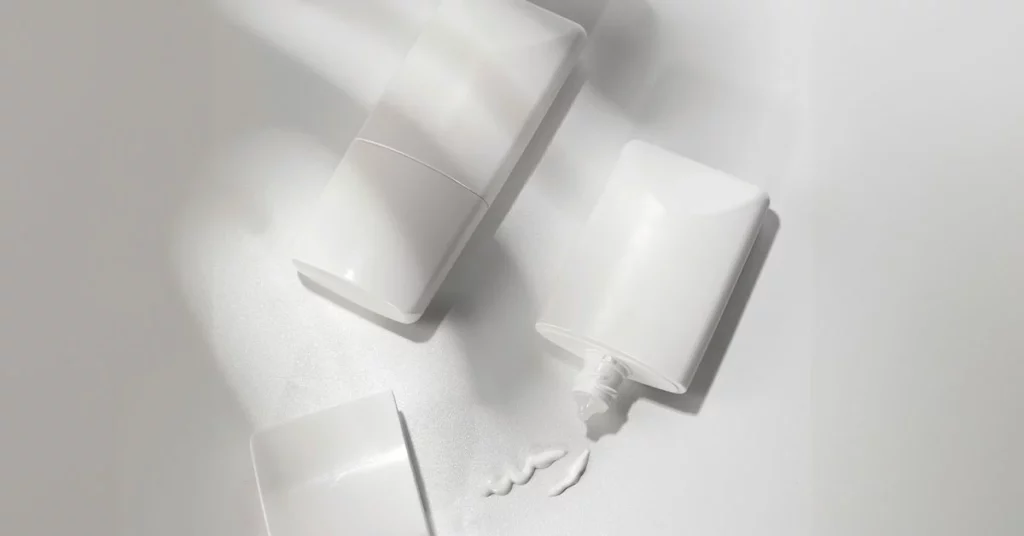
Chemicals to Avoid in Common Sunscreens
When you scan the sunscreen aisle, an array of bottles will boast about their SPF power, yet hidden beneath the promises of protection lie ingredients that might do more harm than good.
- Oxybenzone: One of the most prevalent chemicals in sunscreen today, has raised red flags within the scientific community. Studies suggest it might disrupt hormones and has been detected in human breast milk, blood, and urine samples.
- Octinoxate: Another widespread sunscreen chemical, has been linked to coral bleaching, compelling some regions to ban its use entirely to protect marine ecosystems. Beyond its environmental toll, it’s been associated with skin allergies and, like Oxybenzone, potential endocrine disruption.
- Avobenzone, Homosalate, and Octocrylene: While less notorious, join the list as chemicals that absorb UV rays. While effective, they’re often accused of causing photoallergic reactions and, in Avobenzone’s case, breaking down into potentially harmful byproducts when exposed to sunlight.
Given these concerns, it’s no surprise that there’s a rising demand for sunscreens that are safer for our bodies and the world we inhabit. Keep an eye out for these ingredients and try to avoid products that use these chemicals as part of their sun protection methods.
As we shift gears into the next section, let’s focus on mineral-based sunscreens to learn how they work and understand why they’re not just an alternative, but a preference for the health-conscious consumer.
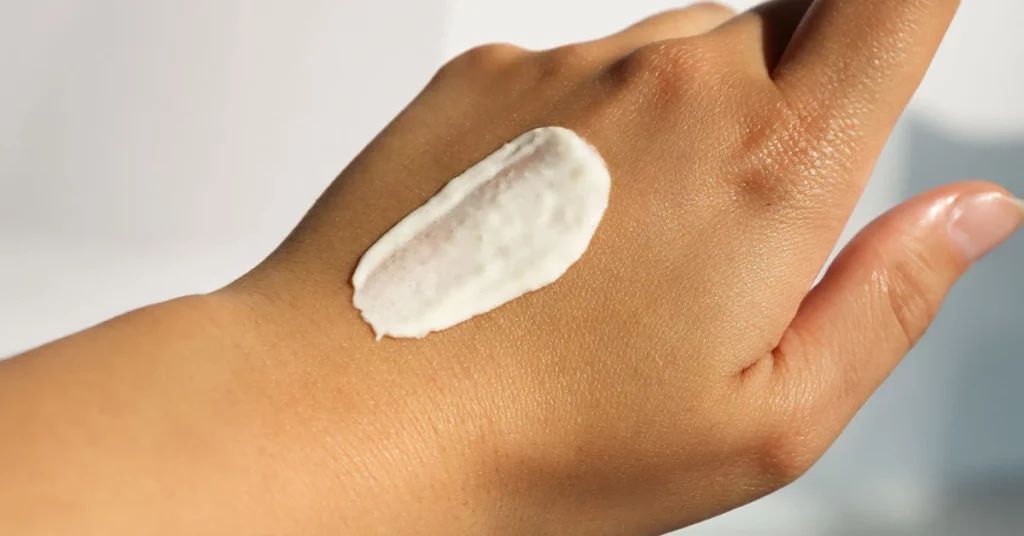
Mineral-Based vs. Chemical-Based Sunscreens
We all want to enjoy the sun without worrying about skin damage. But oftentimes, the sun protection options we choose could be irritating our skin.
Chemical sunscreens work by absorbing into our deeper layers of skin and actually turning the suns rays into heat. UV rays can often alter or break down these chemicals, leaving us unprotected and exposed to harm.
Natural sunscreens however, use minerals like zinc oxide and titanium dioxide to create an actual physical barrier on top of the skin that reflects UV rays away from the skin. Studies have shown that these mineral compounds are actually more effective at sun protection than their chemical counterparts.
Zinc oxide and titanium dioxide are the leading ingredients in all natural sunscreens. They’re known for their broad-spectrum protection, shielding skin from both UVA and UVB rays. And they’re a great option for people with sensitive skin because they’re much less likely to cause irritation versus chemical-based sunscreen.
Another benefit is that these sunscreens are not just kinder to your skin, but also to marine life. When we swim in the ocean, perfumes, lotions, sunscreens and anything else we’ve rubbed on our skin sheds into the water and can affect delicate ocean habitats like coral reefs. Research has shown that some ingredients in chemical sunscreens contribute to coral reef bleaching, so swapping to a mineral sunscreen means you’re also playing a part in protecting ocean ecosystems.
Another advantage of mineral sunscreens is that they’re effective right away. Chemical sunscreens need about 20 minutes to sink in before they start working, but with a zinc oxide or titanium dioxide sunscreen, protection begins as soon as it’s applied. This is a practical benefit for anyone who wants to enjoy time outdoors without a wait.
Highly Rated Natural Sunscreen Brands
In our search for skin-safe sunscreens, we’ve come across several standout brands that prioritize natural, health-conscious ingredients. Here are a few of the top contenders we think are worth giving a try.
Sun BioLogic: Harnesses the power of non-nano zinc oxide to protect your skin without compromising your health or the environment. Recommended by the EWG (Environmental Working Group) hypoallergenic formulas cater to individuals with sensitive skin, and they ensure a broad-spectrum cover to shield against both UVA and UVB rays. Their commitment to ‘reef-safe’ practices means you’re making a responsible choice for marine life as well.
Raw Love: Founded in Maui, Hawaii this product is committed to raw, natural ingredients that are safe for the body and reef friendly. With just a handful of organic ingredients, Raw Love sunscreens are a testament to their belief that less is more. Their commitment to eco-friendliness extends beyond their clean formulas to include responsible packaging.
Blue Lizard Australian Sunscreen: A great product for those adjusting to mineral sunscreens. With bottles that change color in harmful UV light, they offer a visual cue to remind you to apply protection. While their formulas are designed with sensitivity in mind, their playful approach educates consumers on sun safety without overwhelming them.
Well People: This brand sits on the premium end of the spectrum, combining natural ingredients with a luxurious feel and is highly rated by the EWG (Environmental Working Group). For those on the hunt for a daily moisturizer that doubles as sun protection, Well People’s line of sunscreens feels indulgent, merging the line between everyday lotion and essential sun-defense. They manage to offer a lightweight texture and numerous tinting options without using the controversial chemicals prevalent in mainstream brands.
Some Tips for Choosing Your Natural Sunscreen
Shopping for the right sunscreen can often feel overwhelming, but it doesn’t have to be. Armed with knowledge about what constitutes a natural sunscreen, you’re one step closer to making an informed choice that benefits your health and the environment.
- Go beyond SPF: When it comes to natural sunscreens, SPF protection shouldn’t be your only concern. Ensure you choose a product that provides broad-spectrum coverage to shield against both UVA and UVB rays. Look for products with a high percentage of zinc oxide or titanium dioxide for superior protection.
- Water Resistance: If you’re an outdoor enthusiast or an avid swimmer, water resistance is another factor to consider. While no sunscreen is completely waterproof, some natural formulas are specifically designed to stay on the skin longer, even when you’re sweating or taking a dip.
- Flip Over The Bottle: Be vigilant about marketing claims. Some products on the front label boast “all-natural” or “chemical-free” labels, yet still contain harmful additives. It’s essential to flip over the bottle and actually read the ingredient list before making a purchase.
A good natural sunscreen can be a game-changer for your skin health, so take the time to find one that suits your needs and preferences. Ultimately, the best sunscreen is the one you’ll use consistently and correctly.


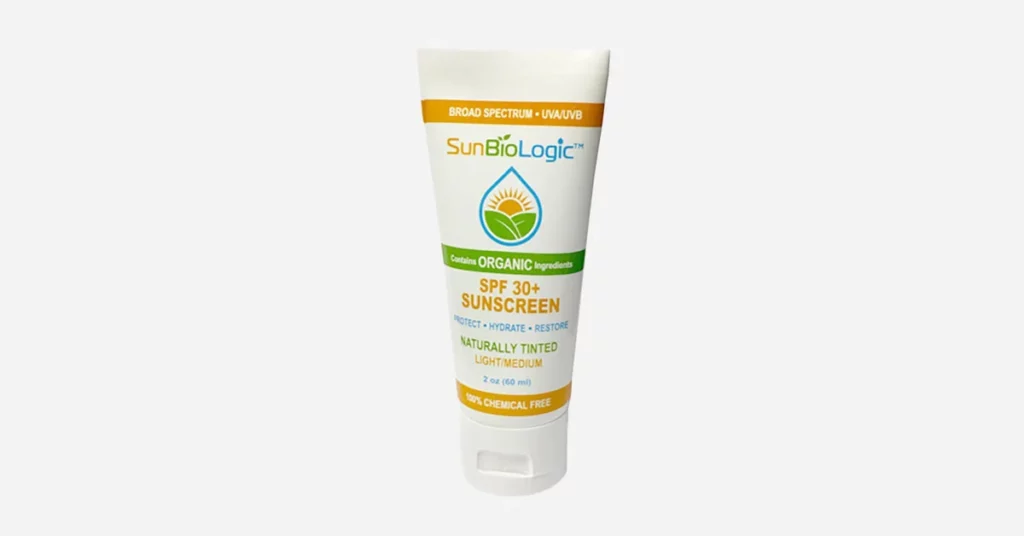
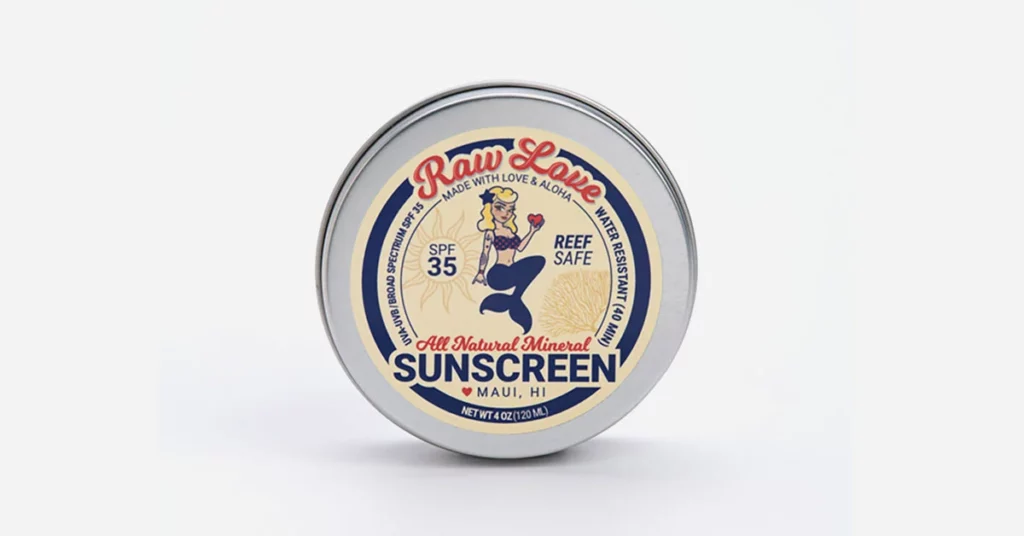
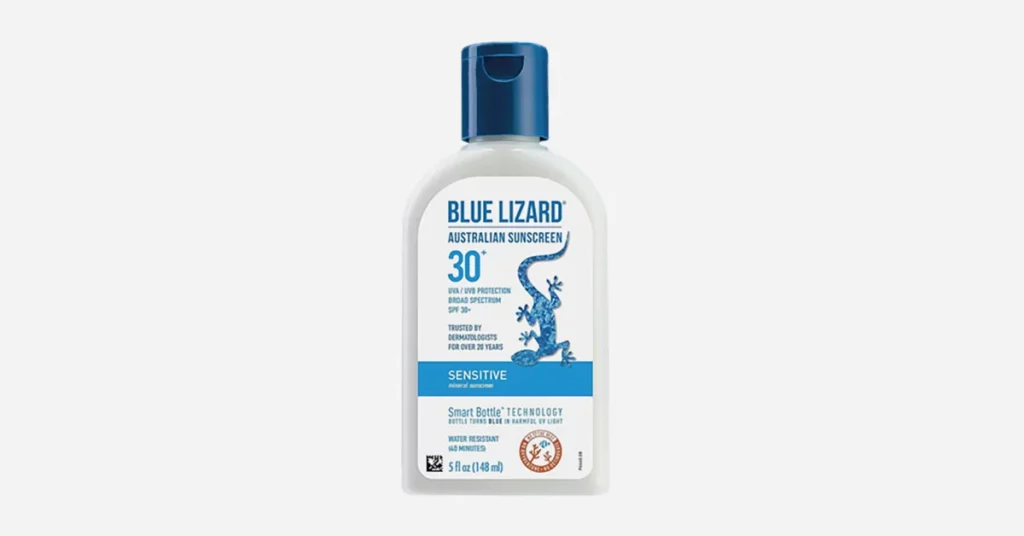
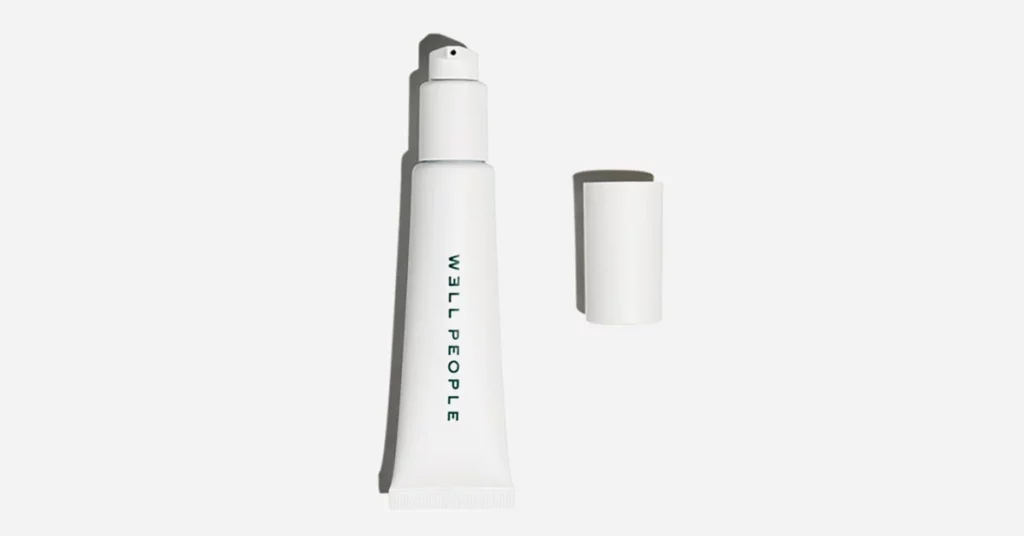

Leave a Reply